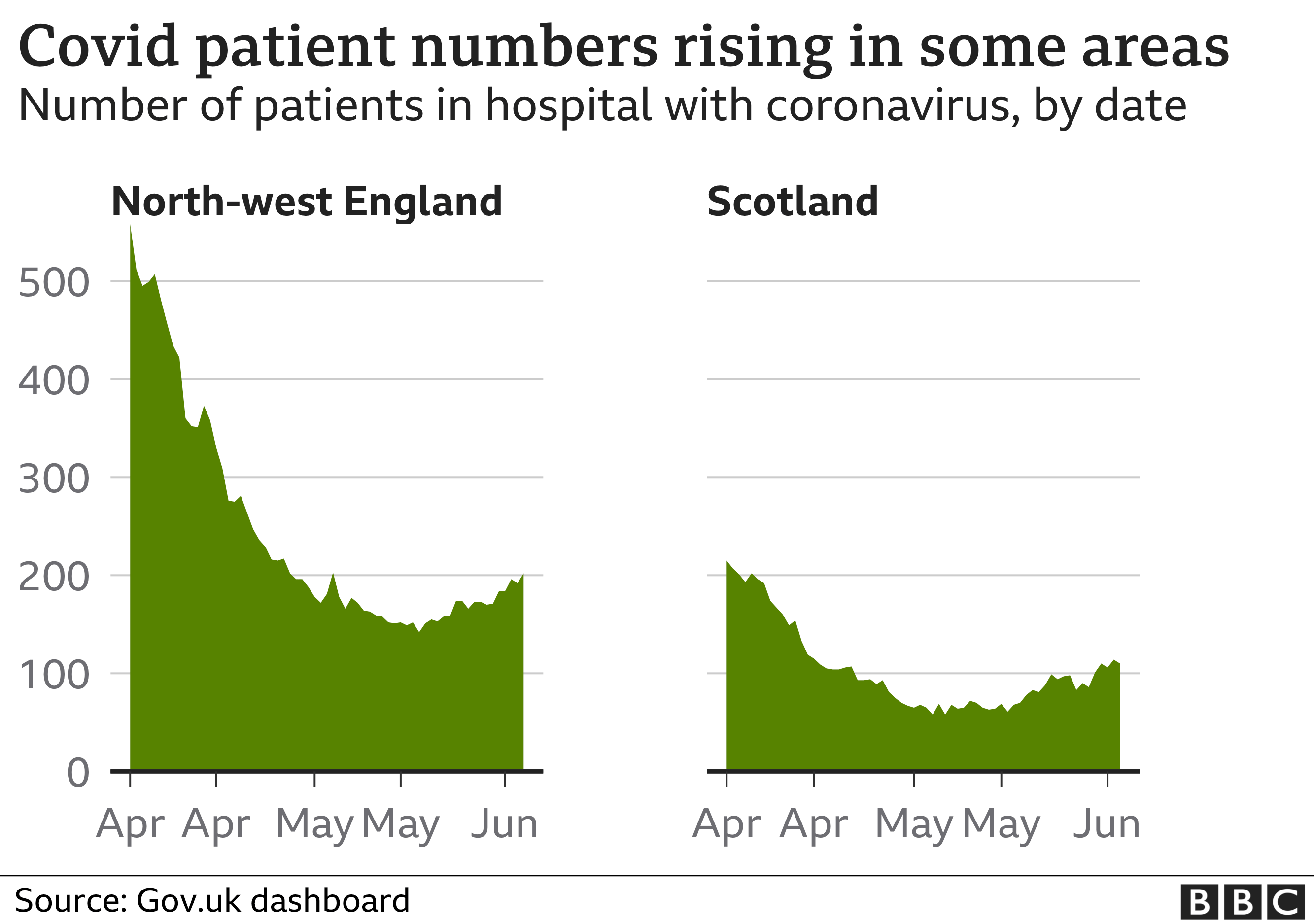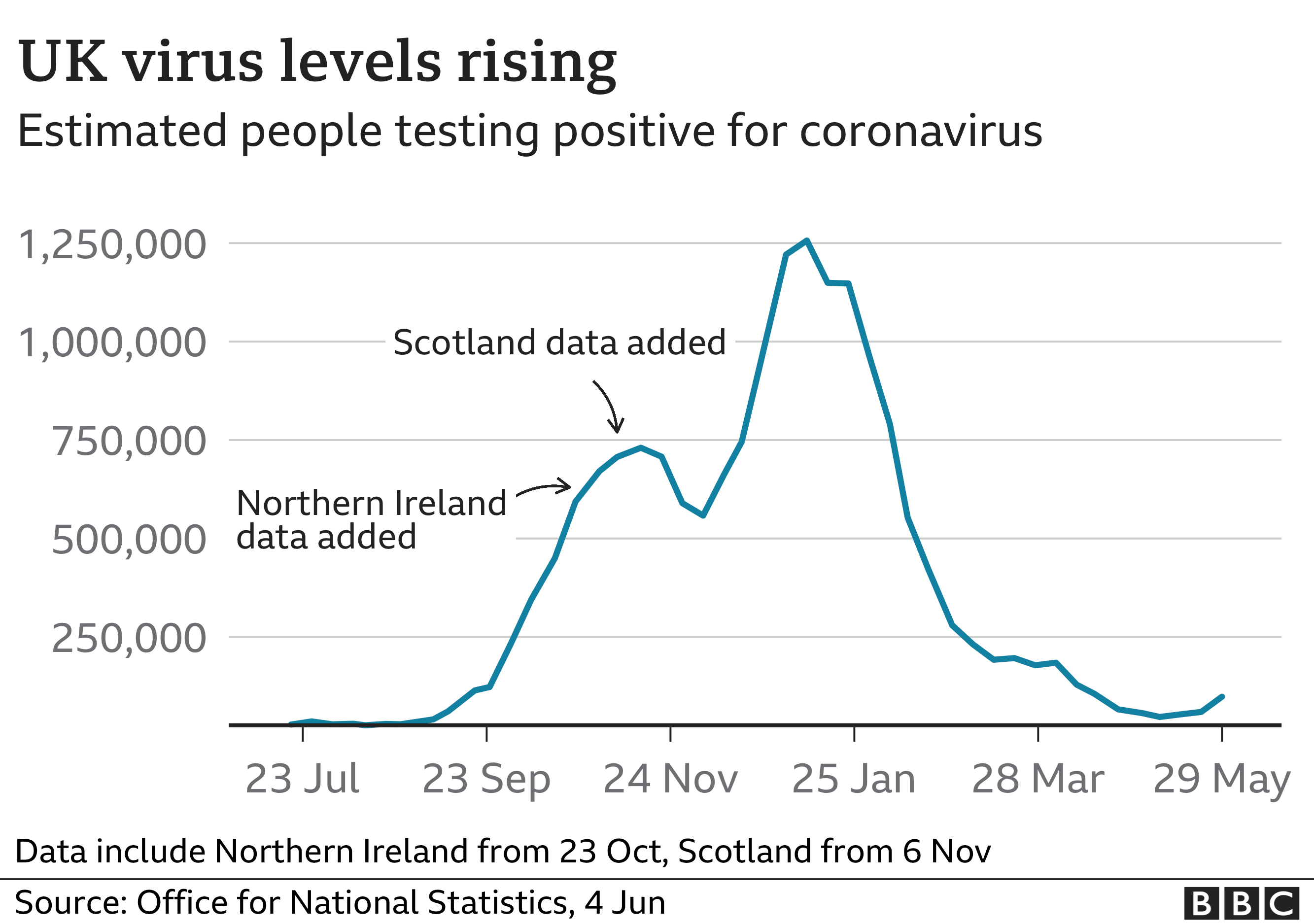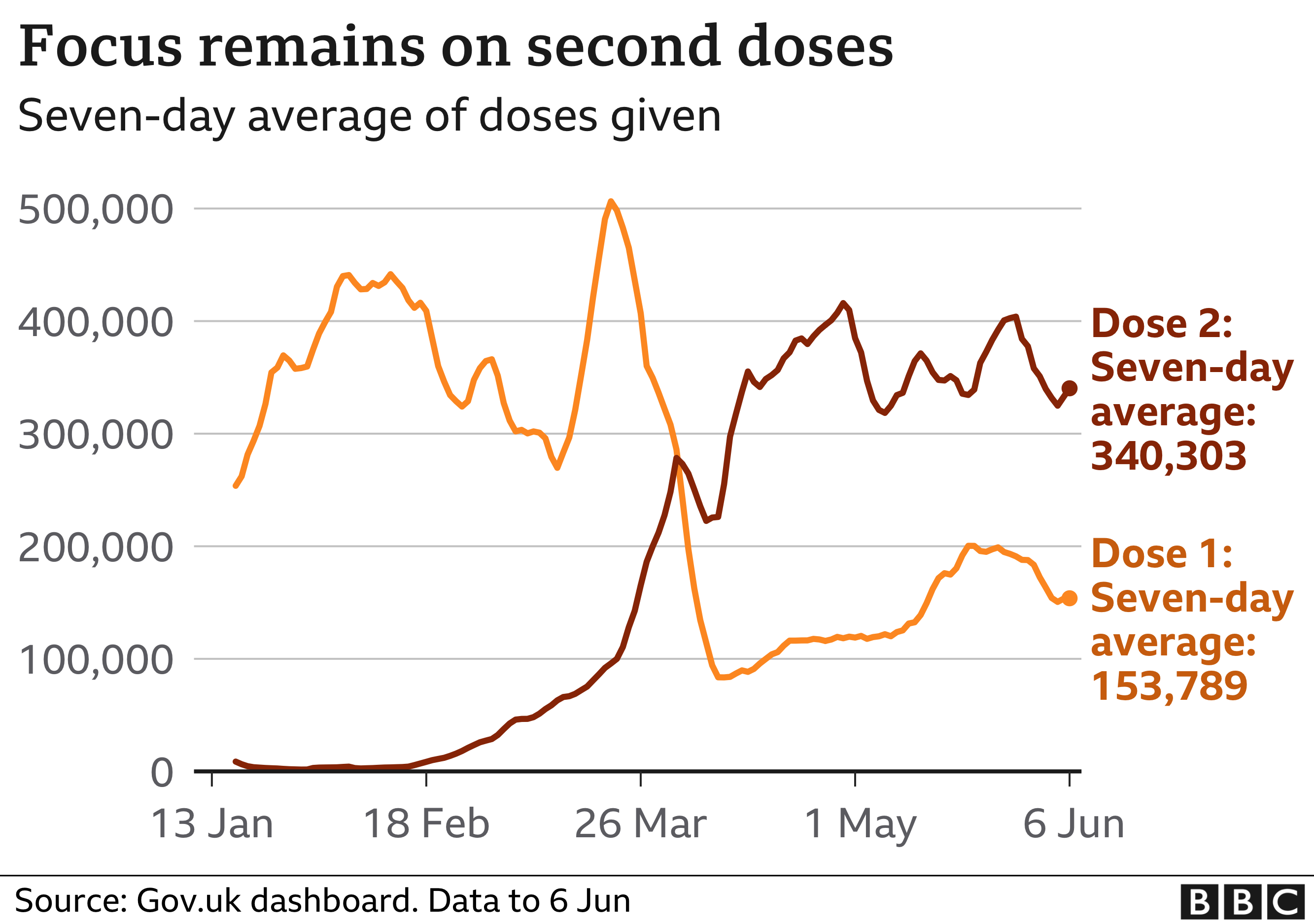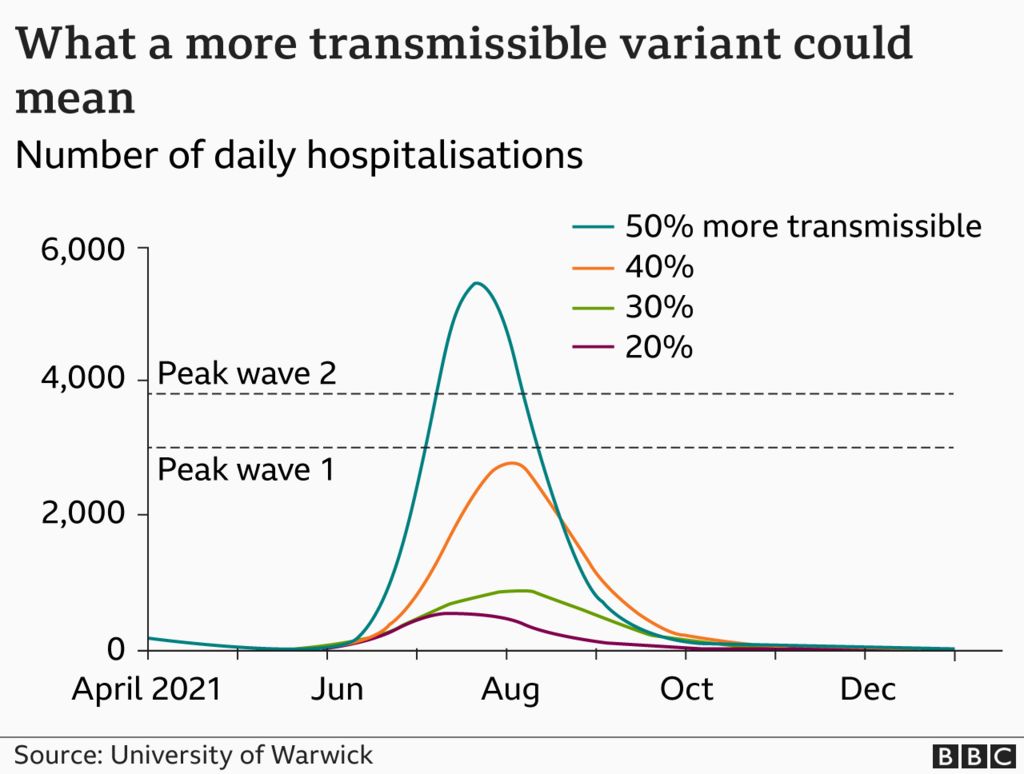The key numbers that offer clues as to whether “freedom day” will proceed as planned on 21 June.

image copyrightGetty Images
The government faces a difficult choice in the next few days.
Many people are desperate to see the return to normality promised by the final stage of the government’s roadmap to lifting lockdown.
But ministers always said 21 June was not set in stone – and could be affected by changes in the pandemic, including the emergence of new variants.
What will they be weighing up as they make their final decision?
Here are four key numbers to watch out for in the coming days.
There are just under 1,000 people with coronavirus in hospitals in the UK, up about 5% from a low point a week ago.
That’s far below the peak of nearly 40,000 people in January. And NHS Providers say the people who are going in aren’t as seriously ill as they were in early waves. They are younger, or don’t require intensive care as much – and they’re coming out sooner.
That means this wave is different, and better, than previous ones but eventually rising admissions will mount up.
In the two parts of the UK that are furthest into this “third wave”, the North West of England and Scotland, the number of people in hospital with coronavirus is rising faster than the rest of the UK.

How far and how fast this trend develops depends on how fast infections are rising and how likely you are to get seriously sick with the new variant.
Health Secretary Matt Hancock told Parliament yesterday that the main type of coronavirus in the UK – the Delta variant first identified in India – is “at least 40%” more transmissible than the version that sparked the winter wave – the Alpha variant first seen in Kent.
And as Delta takes over, infections are on the rise again.
Last week, the Office for National Statistics (ONS) suggested that UK infections had risen by 60% in a single week.

If that growth rate remains steady or picks up, it suggests that cases will rise pretty quickly if and when society reopens further.
We’ll learn more on Friday.
But rising infections on their own aren’t a reason to extend lockdown.
The government’s key test is whether rising infections “risk a surge in hospitalisations which would put unsustainable pressure on the NHS”.
And that also depends on your chances of getting seriously ill if you catch coronavirus.
That is much harder to predict now than it was in the first or second waves, when scientists could predict what proportion of cases would need treatment.
That’s because vaccines do reduce your chance of getting really sick if you do get infected with any variant.
Already we can see that while people who have been double jabbed make up more than 40% of the population, they make up fewer than 5% of people who have been admitted to hospital with the Delta variant.
But it does look like it takes two doses before someone gets high levels of protection from that variant.
So there’s a race on: double-jab as many people as possible, before the virus spreads enough to find the vulnerable or to put pressure on the NHS.

More than 50% of adults have been given the best protection possible – two doses of the vaccine. That’s still a way off herd immunity, even if you add in people who have some immunity from having had coronavirus in the past.
Say each infected person would, on average, pass the virus on to six other people in a fully open society that hadn’t seen the virus before.
Then five out of six people, not just five out of six adults, would need to be able to fight off the virus – that would be the “herd immunity threshold”.
We’re not there yet, and it’s possible that the threshold is higher as Delta could be more infectious than imagined in this example.
But every person vaccinated helps to slow the spread.
To predict what rising infections will mean for the NHS, you need to know how fast cases will rise and how many cases will get really sick.
We don’t know either figure precisely, and probably won’t by 14 June.
And a rough estimate doesn’t help. The last time government modellers made their forecasts, the difference between “40% more transmissible” (the orange line below) and “50% more transmissible” (the blue line below) made a huge difference to the predicted severity of a third wave.

And then, to know what to do about rising cases, you need to predict what effect any change to the rules might have on spread. It’s uncertainty piled on uncertainty.
To know the cost of that action, you need to know what effect another few weeks of being shut, or trading at a loss, would do to the businesses that are desperate to open up.
It’s a mammoth task and one that will require some old-fashioned political judgement as well as hi-tech epidemiological models.


